
Nutrition is a funny thing. In theory, we should be eating food that is good for our health most of the time. Yet, actually knowing which foods are healthy and which ones are not has proven to be quite a challenge. After all, food can be quite complex chemically and this means that foods may often have unexpected impacts on the body.
One of the biggest examples of how healthy food can be confusing comes from diet recommendations, especially those that the government makes or endorses. Over time these recommendations change, which often leads to changes in the diets that people follow as well.
At the same time, we are learning a lot more about food and the science behind some foods and their impact on the body. Often, the results that are found are quite unexpected.
Because of this, there is a growing group of foods that were once considered unhealthy that are now considered to be healthy. Or, at least, they are considered to be healthy in some circumstances and some levels of consumption.
Here are some of the top foods that were once considered bad for you but are now generally viewed as healthy. Now, of course, there is some controversy about many items on this list, but in general the consensus is that these items are healthy.
Food That’s Actually Good For You (Even Though You Heard It Isn’t)
Eggs

Eggs have been a major victim of our excessive concern about cholesterol. Yes, eggs do contain cholesterol, but they are also very nutritious and a great source of protein (particularly the yolks).
This makes them particularly powerful for breakfasts, as they can help give people the energy to go through the day. Additionally, dietary cholesterol actually has relatively little impact on our overall cholesterol levels, as our body synthesizes cholesterol as well. Besides that, researchers are starting to find that cholesterol isn’t even that significant for heart health.
So go on, have an egg or three.
Butter

For a long time, there has been this idea that, in general, fat is unhealthy and contributes to all kinds of health problems. That led to the common diet approach of reducing fat as much as possible, which people still do today. Yet, the evidence for this perspective was always extremely limited. Modern research is now showing that fat isn’t that bad for us and that high-fat low-carb diets (the reverse of typical recommendations) may be better for health and for weight loss.
Based on those perspectives, it isn’t surprising that butter is also making a comeback. After all, most of the issues with butter were based on its fat content. Furthermore, butter is so much better for health than margarine and other alternatives. Most butter alternatives are heavily processed and involve a large number of additives, most of which you probably don’t want in your body.
Full Fat Milk

Full fat milk (and dairy in general) is another thing that’s been hit by our recent hatred of fat. In general, people tend to turn to low fat or fat free milk because they are trying to lose weight. Yet, researchers have found an interesting dairy fat paradox. Essentially, research has illustrated that people consuming full fat milk have a decreased chance of being obese, which is pretty much the opposite of what you might expect.
At the very least, that outcome means that full fat dairy is probably as healthy as reduced fat versions. It may even be that full fat milk is healthier, although research into that area is still ongoing.
Salt
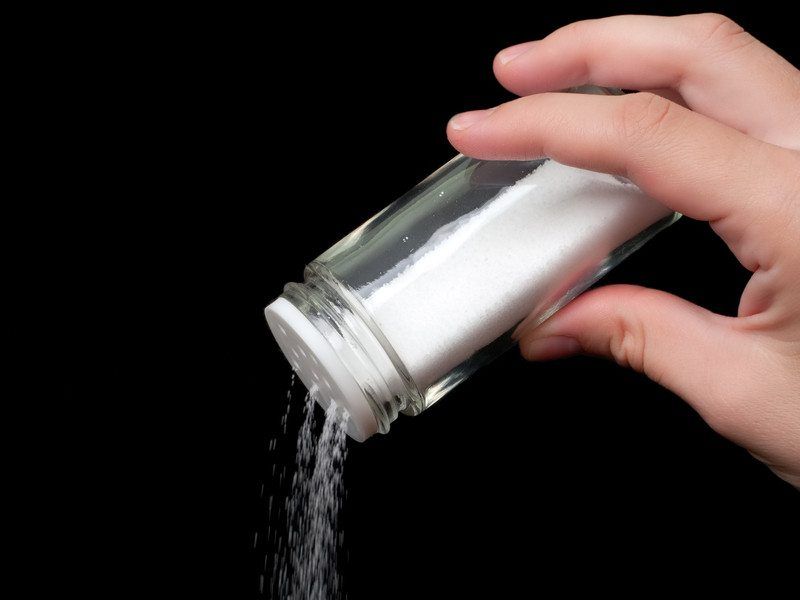
I’m sure you’ve heard about the importance of keeping your salt levels as low as possible. This rhetoric has become extremely common, yet there is surprisingly little evidence to back the idea up. In particular, research has shown that cutting down salt intake doesn’t have any impact on the risk of heart attacks. The truth is that we don’t really know what impact salt has on the body but it probably isn’t nearly as much as most recommendations imply.
Now, there isn’t any evidence that salt is good for your health either. That suggests that you should tailor your salt intake around what you like rather than arbitrary guidelines (although, this is only true for healthy people, with some health conditions salt could potentially still be an issue).
Coffee

Coffee tends to be viewed as a guilty pleasure and something that we probably shouldn’t be drinking. But, there is growing evidence suggesting that coffee actually offers some health benefits. A number of these come from the caffeine, which is a stimulant and can play a role in brain function and alertness.
Other benefits may come from the coffee itself, including the potential to decrease diabetes risk. At the same time, coffee does contain some nutrients and antioxidants. Overall, these aspects make coffee particularly healthy. Of course, the benefits do stop applying if you are loading up your coffee with cream and sugar every day.
Dark Chocolate
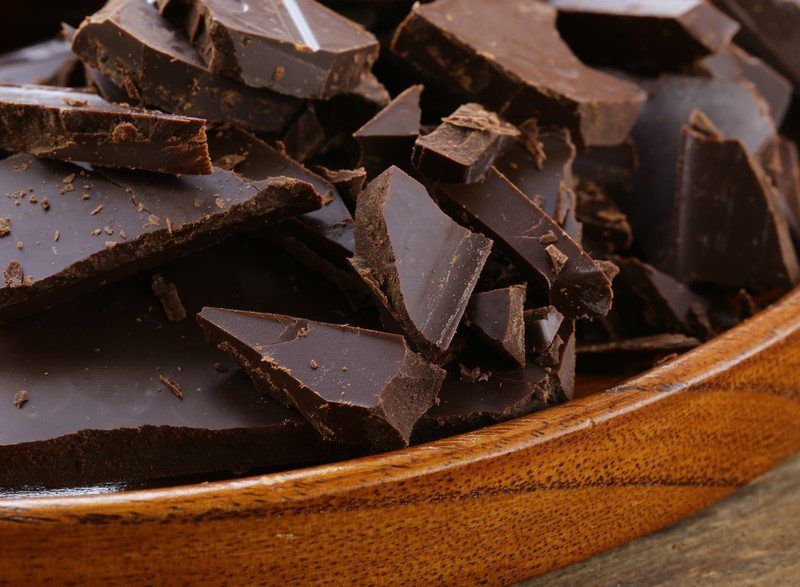
Chocolate might be a treat food, but it does also contain some powerful compounds. Perhaps the most important group of compounds in chocolate is the flavonoids, which have been the subject of a wide range of research.
Now, it is important to note that the benefits of chocolate largely apply to dark chocolate. This is because dark chocolate tends to have a higher level of flavonoids and a lower amount of sugar and milk. Most of the research into chocolate benefits has also focused on dark chocolate and has supported the idea that dark chocolate can be good for health.
Nevertheless, chocolate is still a significant source of calories, so you still need to pay attention to how much dark chocolate you consume.
White Rice
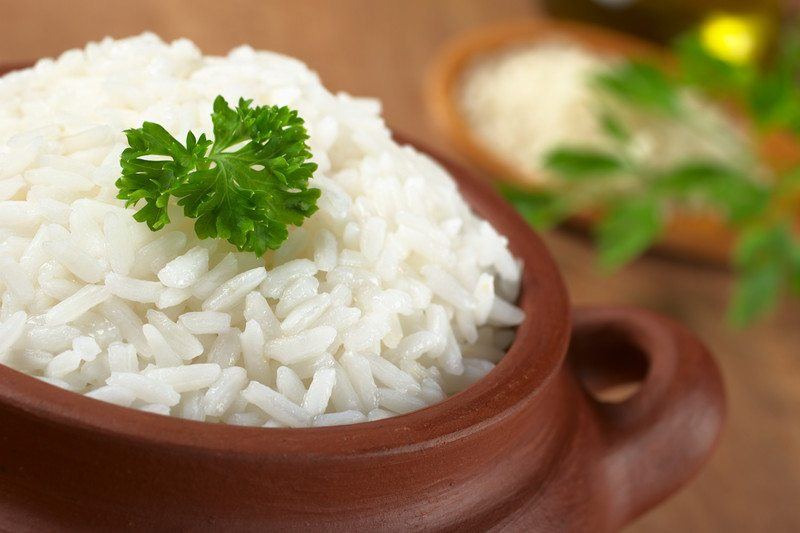
White rice is one food type that people try to cut out as soon as they focus on eating healthy. Yet, there really isn’t any evidence suggesting the rice is bad for you. Rice does have a reactively GI, but that can actually be beneficial when it is used as a part of a meal.
If you need evidence that white rice is good for you, take a look at cultures like Japan. Japanese food heavily relies on white rice and the rice is consumed at most meals. Yet, people in Japan tend to be healthy (much healthier than many people in the United States). That strongly suggests that the white rice isn’t doing them any harm at all.
Peanut Butter
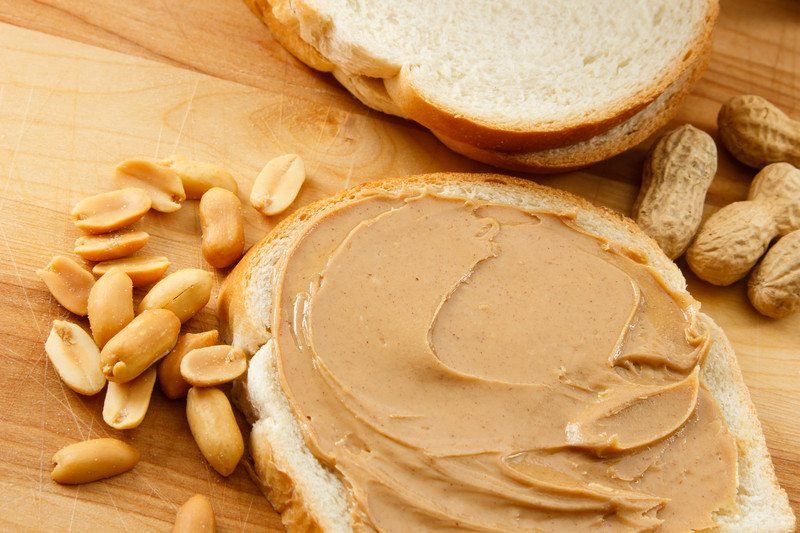
Peanut butter is often avoided because it is high in fat. Yet good brands of peanut butter are little more than crushed peanuts along with some salt. So, with peanut butter, you are still getting all of the nutrition and health benefits from the nuts. For example, nut consumption has been linked to improvements in some risk factors for heart disease.
In fact, the only real issue with peanut butter is that it is pretty easy to eat too much of it. So, if you have good portion control, peanut butter can certainly be a healthy addition to the diet. But, if you can’t stop eating it, maybe you had still better avoid peanut butter.
As you might imagine, the same arguments apply to other types of nut butters, like cashew and almond butter.
Bananas
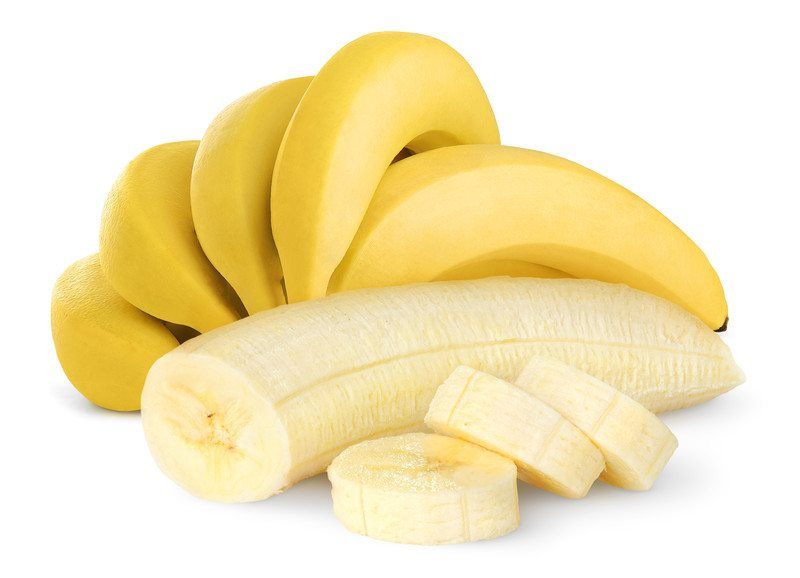
Fruit does tend to be viewed as healthy, but bananas are often considered the exception to this rule. Much of this comes from how much sugar they contain compared to other types of fruit. Yet, bananas are a great source of fiber along with a range of vitamins and minerals.
They also tend to be more filling than most other types of fruit, so they can help people avoid snacking. Bananas are also low GI, despite their sugar content, which is another advantage. Bananas are still not a good choice for people with diabetes, but for the rest of us, they can be quite healthy.
Red Meat

Red meat is another food that has a horrible reputation, but simply doesn’t live up to that reputation. In this case, the reputation of red meat largely comes from early research. That research had some pretty major limitations and mostly failed to prove anything.
Nowadays, there is a growing recognition that red meat can contribute to health, especially because of the protein it contains, as well as its vitamins and minerals, some of which are uncommon elsewhere.
Canned/Frozen Vegetables

When it comes to vegetables, the emphasis is always placed on fresh vegetables. Realistically though, frozen and canned vegetables can be just as healthy. In some cases, they might even be healthier than fresh vegetables.
This happens because vegetables start to lose nutrients and quality from the moment they are picked. With fresh vegetables, a considerable amount of time passes between then and when they are sold in grocery stores and other locations.
In contrast, frozen and canned vegetables are often processed soon after being picked. Even though they lose some nutrients in the freezing or canning process, they still end up having comparable levels of nutrients to fresh vegetables.
Potatoes
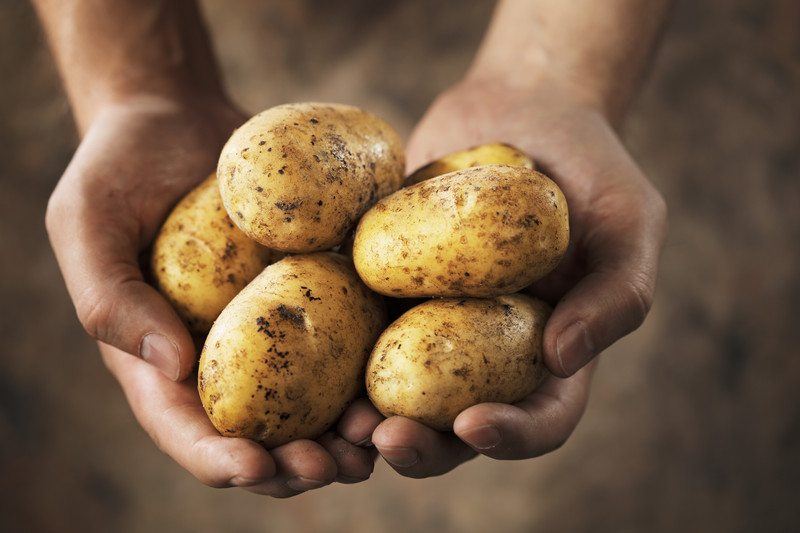
Potatoes were once a dietary staple, partly because they are particularly easy and cheap to produce. But, with the advent of low-carb diets, potatoes are frequently seen as a food to be avoided. In fact, people often say that that potatoes will make you gain weight. Yet, potatoes are a great source of energy and contain a number of key nutrients.
This is even more significant if you try out multiple different varieties of potatoes, as they do differ in the nutrients that they offer. Besides all that, potatoes are a filling addition to a meal and a key source of resistant starch, which can help people to lose weight. So, there really is no reason to avoid the humble potato.
Wine

I’m sure we’d all love it if our nightcap actually turned out to be healthy. When it comes to wine, that perspective may be more than just pure fantasy. Researchers have linked wine to a number of health benefits, including longer life and decreasing the risk of heart disease.
Many of these benefits are linked to the compound resveratrol, although other phytochemicals may also play a role. In general, these benefits have been found for moderate levels of wine consumption, which tends to be somewhere between one and two glasses of wine per day.
This makes indulging after a long day of work just that little bit more rewarding. At the very least, you can stop feeling guilty about enjoying a glass of wine.
Avocados
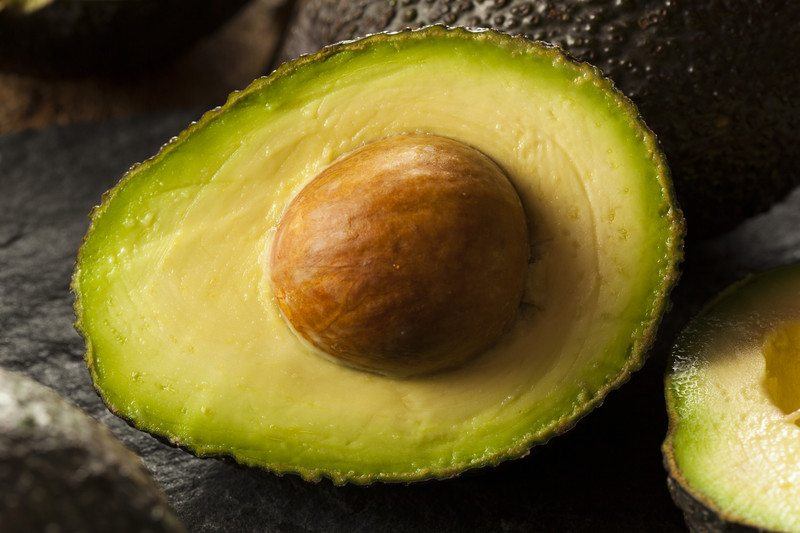
The reputation of avocados has varied a lot over time. Often they’re viewed as unhealthy because they are packed with fat and are pretty high in calories too. Surprisingly, avocados are actually really healthy and they’re even becoming popular among people trying to lose weight.
The first reason for this is their nutrients, which are significant. But, you can get nutrients from a range of places, so that can’t be the only thing. The second reason is the fat. We do need fat for health, even though people seem focused on reducing fat as much as possible.
Additionally, the fat in avocados largely consists of monounsaturated fat, which may help to lower cholesterol. This is a healthy type of fat and it’s a type of fat that we need to be consuming more of.
Cranberry Juice (and other antioxidant juices)

In general, fruit juice is pretty unhealthy. Because fruit juice doesn’t contain the pulp from the fruit it often has much fewer nutrients. At the same time, fruit juice has a high amount of natural sugar and it’s very easy to drink too much. In many cases, fruit juices have almost the same amount of sugar as soda. While they have some nutrients that soda doesn’t have, there are better ways to get those nutrients.
But, some specific fruit juices, like cranberry, pomegranate and tart cherry juice can be healthy. These types of juice are powerful because of the antioxidants they contain. Those antioxidants offer significant benefits for health, making the juice a healthy option.
Nevertheless, you do still have to be careful with this type of juice. After all, it is high in sugar. So, you need to pay close attention to how much you have of these fruit juices and also make sure you get versions that don’t have additives or other nasty ingredients.
Nuts
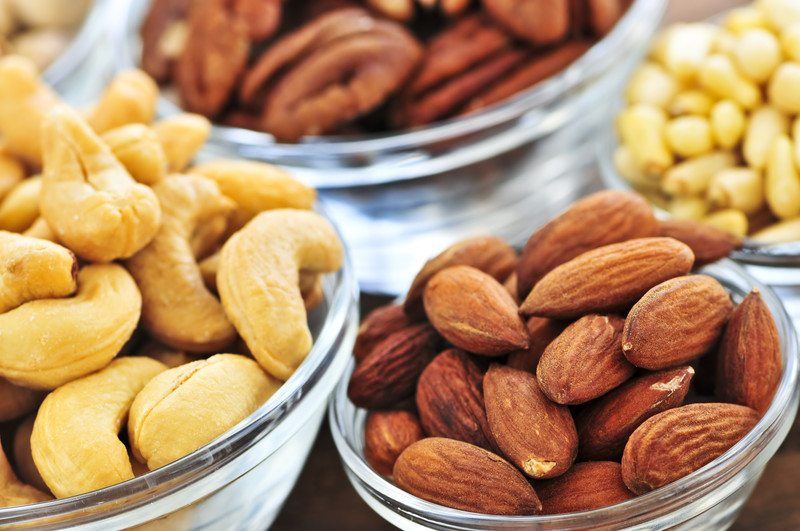
Nuts were once thought to be pretty unhealthy. It’s easy to see why, because they are pretty calorie dense and are also relatively high in fat. But, those things aren’t all bad. Fat itself isn’t nearly as bad for us as most people assume.
In fact, we’re starting to realize that fat isn’t the villain at all. At the same time, their energy density makes them perfect as a snack, especially for people who are very active. Research has even linked nuts to health benefits, like improving heart heath and helping to promote weight loss.
But, it’s important to note that all nuts are not equal. Instead, nuts vary in their nutritional profiles. That also means they will vary in the impacts that they have on your body. Almonds and cashews are frequently promoted as particularly healthy nuts and almonds seem to be one of the most-well researched nuts. This reinforces the idea that almonds are good for our health.
Beer

People are starting to recognize that wine offers some health benefits, but what about beer? It seems almost absurd to imagine that beer might actually be healthy. However, research is suggesting just that – in moderation, of course.
Some of these benefits are connected to the hops in beer. Hops help to make beer high in flavonoids and may be part of the reason that beer has been associated with improvements in cholesterol. Additionally, alcohol in general has been connected to a decreased risk of osteoporosis and stroke. We’re still learning about the mechanisms behind these effects, but there is certainly evidence that beer can offer these health benefits and more.






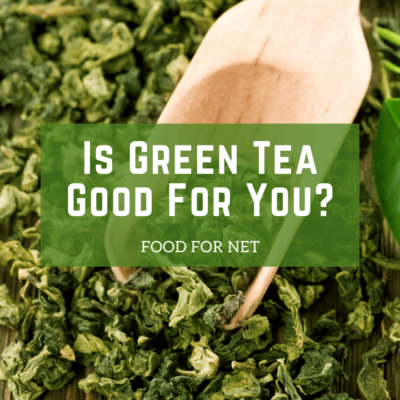






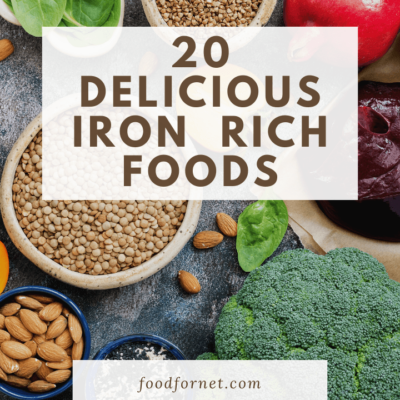


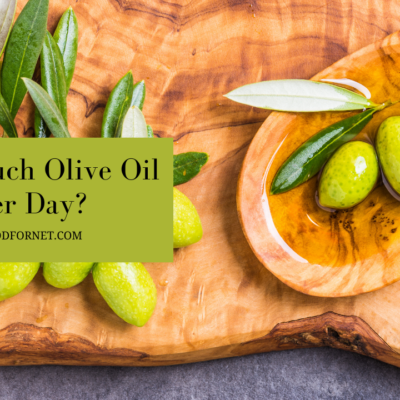
 19 Foods That Seem Healthy But Secretly Aren’t
19 Foods That Seem Healthy But Secretly Aren’t
Leave a Reply